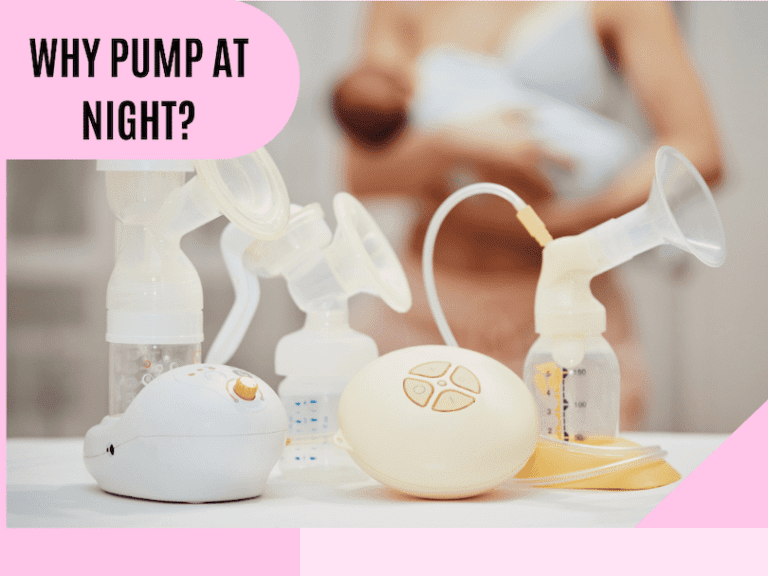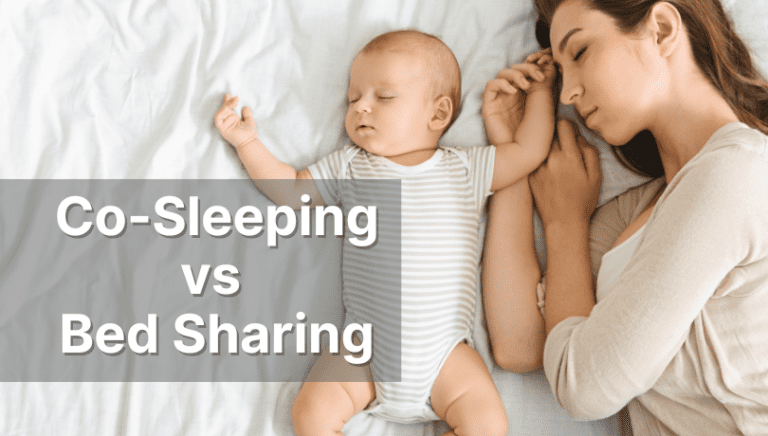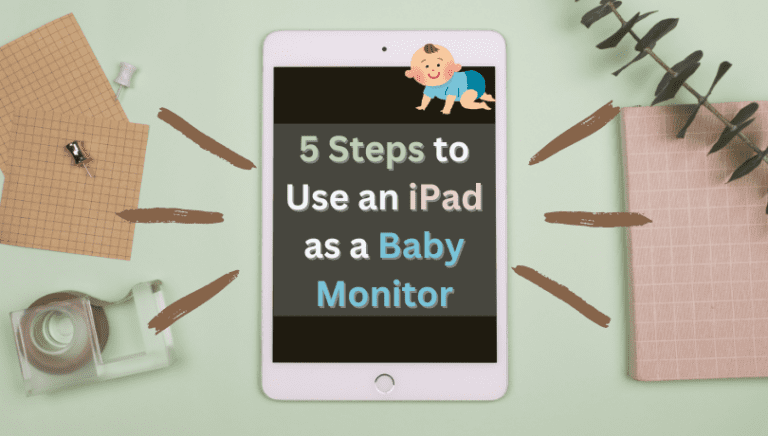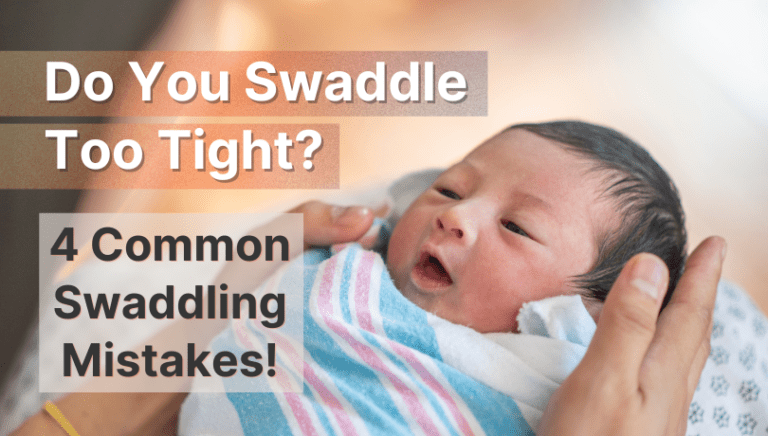When to Stop Using Baby Monitors: A Complete Guide
When you take care of multiple children like I do, it helps to know where everyone is. This is a crucial reason why I began using baby monitors, and I’ve tried different ones over the years.
Currently, I’m using a Babysense V24R monitor for my 4-year-old Sawyer, and my youngest, Theo.
But, a time will come when you wonder how long to use baby monitors and when to stop using baby monitors. I’m going through the same motions now.
So, here’s more insight into when to remove baby monitors from your child’s room and signs that give you insight into whether to keep them or not.
Table of Contents

For How Long Should You Use Baby Monitors?
It depends, to be honest.
In reality, there is no specific time to start or stop using a baby monitor. Every family goes through different situations, and it’s the family’s decision when to use or shut it down. I know that some families even wonder if they need a baby monitor. A lot of it also depends on how old your baby is and their behavior in general.
But, I’ve jotted down some points about when and how to use them for kids of different ages to make it easier for you.
| For Newborns | Some parents will want to know their baby’s heart rate, breathing, and sleeping patterns because it’s not possible to rely on instincts to prevent SIDS. My daughter, Sawyer, was only two at the time, with Theo and Sawyer sharing the same room. So, I decided to be more careful and install the monitor. If this sounds like your situation at home, keep the monitor! |
| For Infants | Some parents like using a baby monitor after 3 or 4 months to be aware of their infant’s sleep cycle, sounds, and movements. Also, if you or your infant is a light sleeper, installing a baby monitor can work wonders to improve bedtime. |
| For Toddlers | A few parents look for baby monitors for their toddlers to keep an eye on them during playtime and prevent uncertainties. If you have multiple kids running around like I do, you want to know where all of them are. So, baby monitors are useful in that sense as well. |

There are other scenarios where having a baby monitor can be life-saving:
| Medical Conditions | If your baby is suffering from hypoxia or pediatric cardiomyopathy, baby monitors are essential. Baby monitors are essential for premature babies too. They help to check heart rates, the temperature of the room, and sleeping patterns because preemies always need extra care. On the flip side, if a mother is unable to physically move after giving birth (or for any other health reason), installing baby monitors makes a lot of sense. |
| The Child’s Behavior | A child’s behavior also plays a major role in deciding how long to continue using baby monitors. If your child has a lot of energy, keeping a two-way baby monitor can help you intervene in dangerous situations. You can track their location and what they are doing with a visual feed. |
| Having a Big House | A large house means more room to crawl, walk, run around, and play. And this is another reason why parents consider using baby monitors longer than usual. Parents continue using monitors if their child’s room is far away. This can also help you check on the baby, particularly at night, and see if they need help. |
Know more about the types of baby monitors and how to choose one.
When To Stop Using Baby Monitors: 5 Signs

If you are unsure when to stop using baby monitors, here are some general guidelines and signs you should note.
1. Your Toddlers are Uneasy About the Monitor
Sometimes, children over five feel uncomfortable if they are being monitored 24×7.
- Sawyer, just at four, told her Dad, with all the sass in the world, “You know, it’s not a good habit to invade someone’s privacy.” And even though our motive was to keep her and Theo protected, her concerns are valid, too.
- We don’t want it to feel like police surveillance at the end of the day. So, we considered turning the monitor off during the daytime, since she helps take care of her younger brother.
2. Your Child Understands Their Actions
- If you are sure that your child has a sense of their actions, you can remove baby monitors.
- Give it a little time and observe your child’s sleeping patterns and overall behavior to see if they are not doing anything drastic or causing major mischief.
3. The Room is Not Far
- If your baby is audible enough from your room, you can consider turning off your monitor occasionally.
- This way, you also make it a habit to personally check on your baby at specific intervals without relying too much on the monitor.
4. The Monitor Makes You Anxious
- This can happen when you use baby monitors for too long. It can cause you to get heavy-handed, constantly looking at the monitor for signs of distress, even when everything seems fine.
5. No More Quality Sleep
- Using monitors for too long can stress you out, even when there is nothing to worry about. That affects your sleep as well.
- So, please keep all this in mind and make your decisions based on how much the monitors help you care for your infants productively.
There is no hard and fast rule about when to remove baby monitors. I’ve seen many questions about if you should turn off baby monitors when a child is five or six. But, that’s not always possible for some families.
In the end, you know your family best, and as a parent, you have a better picture of your baby’s security needs. Simply follow the general guidelines above and choose what works best for your needs.
Safe Ways to Transition Away From Baby Monitors
Usually, at five years old, kids know how to express themselves and can follow a routine guided by their parents. So, it’s important to analyze if you should continue using the monitors or transition away from them, slowly.

There are a few safety measures you can put in place before saying goodbye to baby monitors:
- Your child must stay in a safe sleep habitat. Ensure they are sleeping on time and are not scared. Their room should be near your room so you can hear their calls or notice sounds.
- We know that children are playful and may not know how harmful an object is. So, keep dangerous things out of your baby’s room and away from their reach to avoid accidents.
- Your kids must also know about the dos and don’ts when you are away. This includes teaching them not to hide in unsafe spaces, not playing with dangerous objects, etc.
Kelleigh’s Tip:
Experiment by turning off your baby monitor for two or three days. If you find your baby doing well without it, just keep it for special cases like:
- If your baby falls sick
- When you have visitors or guests at home
- If you catch the flu or fever. Baby monitors can allow you to maintain the necessary distance, while also letting your children know you are there with them, watching for anything they need
Recommended Reading: Signs That Your Baby Monitor is Hacked
6 Tips for Peace Of Mind Without Baby Monitors
I understand. There is a bundle of thoughts running through your head about if you should take baby monitors out of your little ones’ room. But yes, it is possible to have peace of mind without baby monitors! Here are a few tips you can follow regularly once you get rid of your baby monitors.
Tip 1: Be aware of any electric equipment in your baby’s room. Keep the switches off and unplug all the chargers when not in use.
Tip 2: Prevent mishaps by installing window guards in your baby’s room. Also, keep away furniture or big toys that your child would try to climb on.
Tip 3: Clean and sanitize all the toys. Infants do not have strong immune systems, and they can catch the flu and cough quickly.
Tip 4: At night, it’s better to use dim lights (think cute night lights) because small children can get scared of the dark.
Tip 5: Check the room temperature and ensure it’s favorable for your child’s health.
Tip 6: Don’t store detergents and toxic substances in the child’s bathroom, or ensure it is all out of their reach. Furthermore, the trash cans in the cabinets should be kept closed.
Final Thoughts On Baby Monitors
Baby monitors benefit you when you use their features to the best of your ability, and they are placed in the right location. It made my life easier because I could be all ears and eyes while doing other chores.
In contrast, it should be based on your personal choices if you want to stop using baby monitors at night, day, or entirely. Be thoughtful about the safety tips beforehand, and once you are sure that you and your children are doing well without monitors, you can gradually transition out of them.






